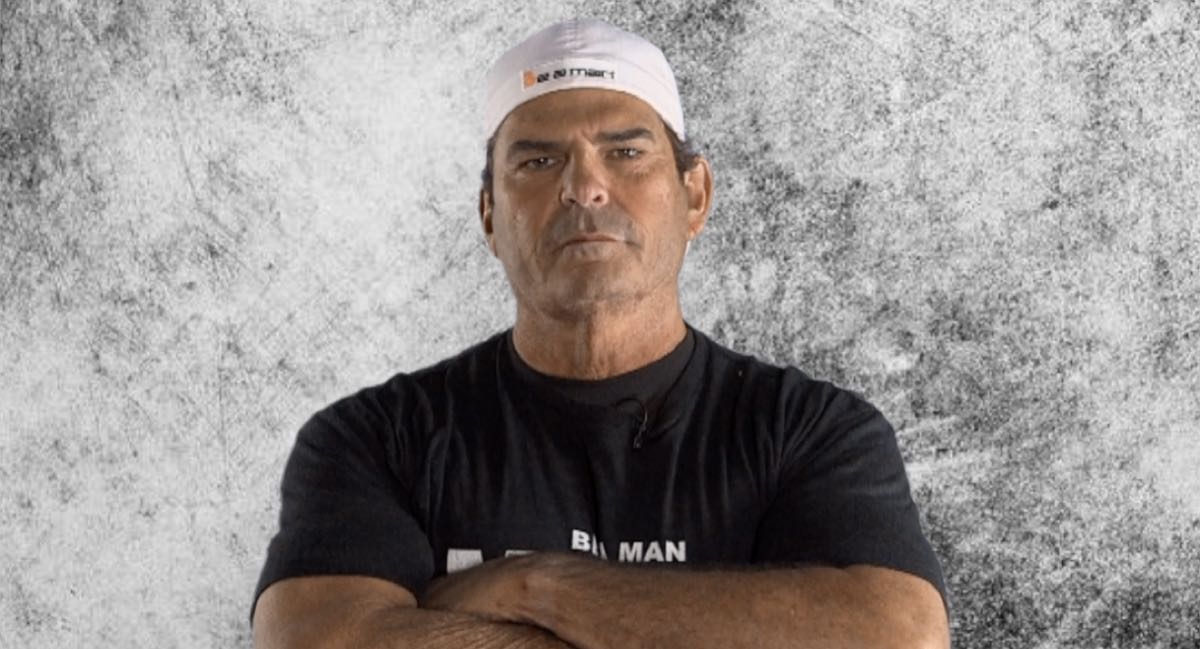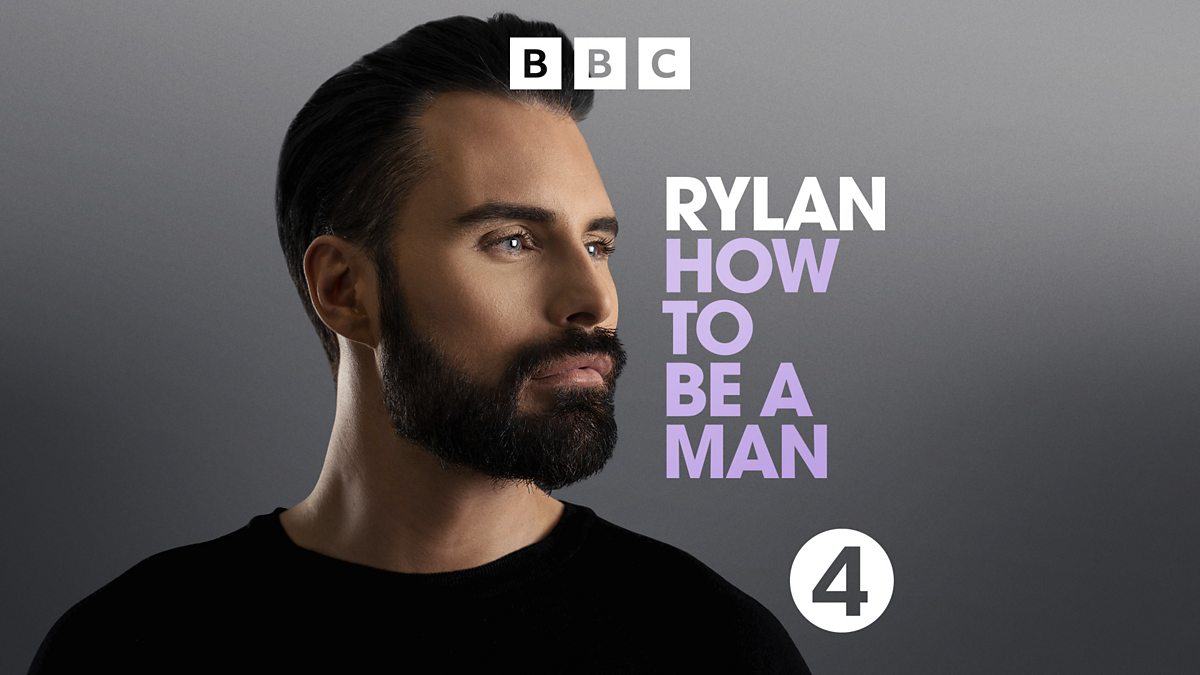What Does It Mean To Truly "Be A Man" In Today's World?
Let’s cut to the chase, folks. The phrase "be a man" has been tossed around for generations, often carrying a heavy load of expectations and stereotypes. But what does it really mean in 2023? Is it about strength, stoicism, or something deeper? This isn’t just about being tough; it’s about embracing vulnerability, resilience, and authenticity. In a world that’s constantly evolving, understanding what it means to truly "be a man" is more important than ever.
We live in an era where masculinity is being redefined. The old-school ideas of what it means to be a man—gritting your teeth, suppressing emotions, and powering through—are starting to crack under the weight of modern realities. Men today are encouraged to express themselves, seek help when needed, and balance strength with sensitivity. It’s not about conforming to outdated norms; it’s about finding your own path.
This article dives deep into the concept of masculinity in the modern age. We’ll explore the challenges, the stereotypes, and the opportunities that come with redefining what it means to "be a man." Whether you’re a guy trying to figure out your place in the world or someone who cares about the men in their life, this is for you. Let’s get real, shall we?
Read also:Chris Oconnor The Journey Of A Remarkable Entrepreneur And Innovator You Need To Know
Table of Contents
- What Does "Be a Man" Really Mean?
- Breaking Down Masculinity Stereotypes
- The Importance of Emotional Intelligence
- Redefining Strength in Modern Men
- Changing Roles of Men in Society
- Embracing Vulnerability
- Mental Health and Masculinity
- Building Better Relationships
- Fatherhood and Modern Masculinity
- The Future of Masculinity
What Does "Be a Man" Really Mean?
If you’ve ever been told to "be a man," chances are it came with a side of unspoken rules. But here’s the thing: those rules were written a long time ago, and they don’t always fit the world we live in today. At its core, "being a man" isn’t about fitting into a mold; it’s about being true to yourself while contributing positively to the people and communities around you.
In this section, we’ll unpack the layers of masculinity and explore how cultural, social, and personal factors shape our understanding of what it means to "be a man." It’s not just about biology—it’s about identity, values, and choices.
Understanding the Evolution of Masculinity
Back in the day, masculinity was often equated with physical strength, dominance, and emotional restraint. Fast forward to today, and we’re seeing a shift toward a more holistic view of manhood. Modern men are encouraged to be leaders, partners, and caregivers—all while staying true to their individuality.
- Traditional masculinity focused on toughness and independence.
- Modern masculinity emphasizes emotional intelligence and collaboration.
- The shift reflects broader societal changes, including gender equality and mental health awareness.
Breaking Down Masculinity Stereotypes
Stereotypes are like old luggage—sometimes they’re useful, but mostly they weigh you down. When it comes to masculinity, there are plenty of stereotypes that need to be unpacked and left behind. From the idea that men shouldn’t cry to the belief that leadership is inherently aggressive, these myths can hold men back from living their best lives.
Let’s take a closer look at some of the most common stereotypes and why it’s time to let them go.
Common Myths About Being a Man
- Myth #1: Real men don’t show emotion. Wrong. Emotions are a natural part of being human, and suppressing them can lead to serious mental health issues.
- Myth #2: Men should always be in control. While confidence is important, pretending to have all the answers can actually weaken relationships and hinder personal growth.
- Myth #3: Success equals wealth. Financial stability is great, but true success is about balance, fulfillment, and meaningful connections.
The Importance of Emotional Intelligence
Here’s a game-changer: emotional intelligence (EI) isn’t just for women. In fact, it’s one of the most valuable skills a man can develop. EI refers to the ability to recognize, understand, and manage your own emotions, as well as the emotions of others. It’s the key to building stronger relationships, making better decisions, and navigating life’s ups and downs.
Read also:Joshua Rush The Rising Star You Need To Know
Research shows that men with high emotional intelligence tend to be more successful in both their personal and professional lives. They’re better communicators, more empathetic partners, and more effective leaders. So, how do you boost your EI?
Ways to Develop Emotional Intelligence
- Practice active listening. Pay attention to what others are saying without interrupting or judging.
- Label your emotions. Naming how you feel can help you process and manage those feelings.
- Seek feedback. Ask trusted friends, family, or colleagues for honest insights about your behavior.
Redefining Strength in Modern Men
Strength isn’t just about muscles—it’s about resilience, adaptability, and courage. In today’s world, being strong means being able to face challenges head-on, learn from failure, and support others. It’s about standing up for what’s right, even when it’s hard, and being vulnerable enough to admit when you need help.
Modern men are redefining strength by embracing qualities that were once considered "feminine," like empathy and communication. This broader definition of strength allows men to lead more fulfilling and balanced lives.
Qualities of a Strong Modern Man
- Resilience: The ability to bounce back from setbacks.
- Empathy: Understanding and caring about the feelings of others.
- Adaptability: Being open to change and willing to learn.
Changing Roles of Men in Society
The roles men play in society are evolving rapidly. Gone are the days when men were expected to be the sole breadwinners and decision-makers. Today, men are taking on more diverse roles, from stay-at-home dads to community leaders. This shift is not only empowering for men but also beneficial for society as a whole.
By embracing these new roles, men are breaking down barriers and creating a more inclusive and equitable world. It’s about recognizing that everyone has something valuable to contribute, regardless of gender.
Emerging Roles for Modern Men
- Stay-at-home fathers: More men are choosing to prioritize family over career.
- Advocates for equality: Men are using their voices to support gender equality and social justice.
- Caregivers: Men are increasingly taking on caregiving roles for elderly parents or loved ones.
Embracing Vulnerability
Vulnerability gets a bad rap, but it’s actually one of the bravest things a man can do. Being vulnerable means opening yourself up to the possibility of rejection, failure, or hurt. It’s about showing your authentic self, warts and all, and trusting that others will accept you for who you are.
When men embrace vulnerability, they create space for deeper connections, personal growth, and emotional healing. It’s not about weakness; it’s about strength in its purest form.
Benefits of Being Vulnerable
- Stronger relationships: Vulnerability builds trust and intimacy.
- Improved mental health: Expressing emotions can reduce stress and anxiety.
- Personal growth: Facing fears and challenges head-on leads to self-discovery.
Mental Health and Masculinity
Mental health is a critical component of overall well-being, yet it’s often overlooked in discussions about masculinity. The stigma surrounding mental health issues can prevent men from seeking the help they need, leading to serious consequences. Suicide rates among men are alarmingly high, and many suffer in silence due to fear of judgment or shame.
It’s time to change the conversation. Men need to know that it’s okay to ask for help, whether it’s talking to a friend, seeing a therapist, or joining a support group. Mental health isn’t a sign of weakness; it’s a sign of strength.
Breaking the Stigma
- Encourage open conversations about mental health.
- Normalize therapy and counseling as part of self-care.
- Provide resources and support for men in need.
Building Better Relationships
Relationships are the foundation of a fulfilling life, and men have a unique opportunity to build stronger, healthier connections with the people around them. Whether it’s with a partner, family, or friends, relationships require effort, communication, and mutual respect. By prioritizing these qualities, men can create lasting bonds that enrich their lives.
Effective communication is key. It’s about listening without judgment, expressing needs and feelings clearly, and working together to resolve conflicts. When men invest in their relationships, they create a support system that helps them thrive.
Tips for Building Strong Relationships
- Practice active listening and empathy.
- Communicate openly and honestly.
- Show appreciation and gratitude regularly.
Fatherhood and Modern Masculinity
Being a father is one of the most rewarding and challenging roles a man can have. In today’s world, fathers are expected to be more involved in their children’s lives than ever before. This includes not only providing for their physical needs but also being emotionally present and supportive.
Modern fathers are redefining parenthood by embracing a more hands-on approach. They’re attending school events, helping with homework, and being active participants in their children’s development. It’s about being a role model, teaching values, and creating memories that will last a lifetime.
Qualities of a Great Father
- Presence: Being there for your children, both physically and emotionally.
- Patience: Understanding that parenting is a journey, not a destination.
- Support: Encouraging your children to pursue their dreams and interests.
The Future of Masculinity
As we look to the future, it’s clear that masculinity will continue to evolve. The men of tomorrow will be more inclusive, more empathetic, and more adaptable than ever before. They’ll challenge outdated norms, embrace diversity, and lead with integrity.
The journey to redefine masculinity is ongoing, and it’s up to each of us to contribute to this positive change. By fostering a culture of openness, respect, and understanding, we can create a world where all men feel empowered to be their true selves.
Final Thoughts
In conclusion, "be a man" doesn’t have to mean what it used to. It can mean being strong and vulnerable, confident and humble, independent and collaborative. It’s about finding your own path and living authentically. So, take a deep breath, let go of the baggage, and embrace the man you’re meant to be.
Now, here’s your call to action: Share this article with someone who might benefit from it. Leave a comment with your thoughts or experiences. And most importantly, keep the conversation going. Together, we can redefine what it means to "be a man" in the best possible way.


